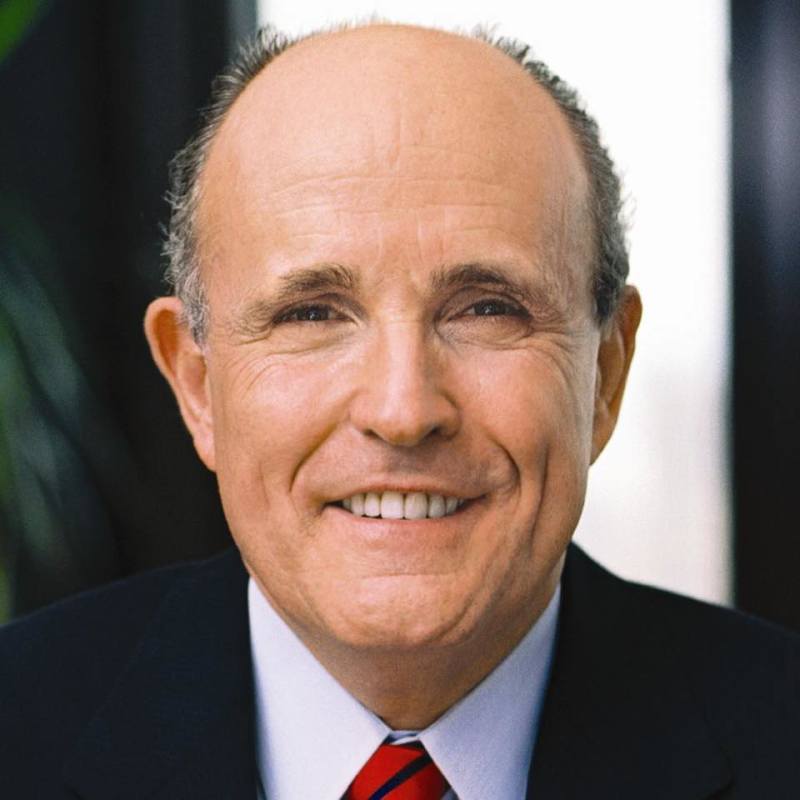
Trump Lawyer Rudy Giuliani hit Supreme Court Justice John Roberts' cowardly decision to reject the Texas lawsuit on election irregularities out of fear that it will cause riots, a report reveals.
On Sunday, One America News Network's Chanel Rion interviewed Giuliani regarding his reaction on Justice John Robert's decision that was overheard by an insider and reported to the media. The insider said Roberts was shouting during their meeting and was telling those present not to hear the Texas lawsuit to avoid any display of violence.
Rion asked Giuliani about his thoughts regarding Roberts' decision, which was allegedly made in response to fears of riots.
"Then he shouldn't be a Supreme Court Justice. He should resign immediately," Giuliani said.
"If a Supreme Court justice is going to make a decision and allow an illegal election to go by because he's afraid of violence, then he's not qualified to serve the United States government in any capacity," he said. "I thought we're supposed to be brave."
"If we start letting fears of riots determine justice, what have we become? A cowardly, sniveling, little Banana Republic," Giuliani responded.
"I know John Roberts from when he was a young man, I can't believe it's true," he added, "But I do believe the Supreme Court made an extremely odd decision in not hearing the evidence. It was like, 'Don't get us involved!' But this is what we have them for."
"They turned down the first opportunity in this century to really act like the Supreme Court is supposed to act when we have this kind of conflict--constitutional conflict. They're the ones who have to step in to render a fair decision that most of the American people can't accept is fair," he stressed.
Guiliani cited that "77% of the Republicans believe the election was stolen, 48% of the Independents believe it was stolen, 30% of Democrats think it was stolen" as proof of the division existing in the country. It also indicated the heightened level of distrust in the recent election results.
He explained that "the Supreme Court did not help" get rid of the division "by basically saying, 'We don't want to hear the evidence. No standing.'"
Guiliani contest, "How can a state not have standing to raise [the case]? ... 22 other states joined [Texas]. There's obviously a great division in our Country. That's the traditional role of the court. It's supposed to step in and help us unify."
The Texas lawsuit was a state action against the swing states Pennsylvania, Michigan, and Georgia in line with the evidences that came out on voter fraud and election irregularities.
Recently, President Donald Trump has stepped in the case by filing a motion to intervene in his personal capacity as a candidate for re-election since, as per their official website, "because his rights as a candidate are affected by the Defendant States' failure to follow and enforce state election laws during the 2020 election."
"You don't unify by just shutting one side out saying, 'We're not gonna listen to you because the New York Times tells us that we shouldn't listen to you and because we're afraid of Antifa," Guiliani told Rion.
In his Twitter account, Guiliani posted Sunday that they--the Trump Campaign--are now taking their battle to the Supreme Court.
"Trump Campaign taking Constitutional fight to Supreme Court. 'Today [we] filed a petition for writ of certiorari to the US. Supreme Court to reverse a trio of Pennsylvania Supreme Court cases which illegally changed Pennsylvania's mail balloting law...'" He announced, quoting a phrase from a Press Release they have posted in the Trump website.
In the said press release, Guiliani cited the Supreme Court Decision "Bush v. Gore" as precedent to this action they are petitioning for. The particular petition being patterned after is one involving "Justice Alito and two other justices" that questioned the constitutionality of changing the "[extending the statutory deadline for receipt of mail ballots from 8 pm on election day to 5 pm three days later]" before and after the elections.































